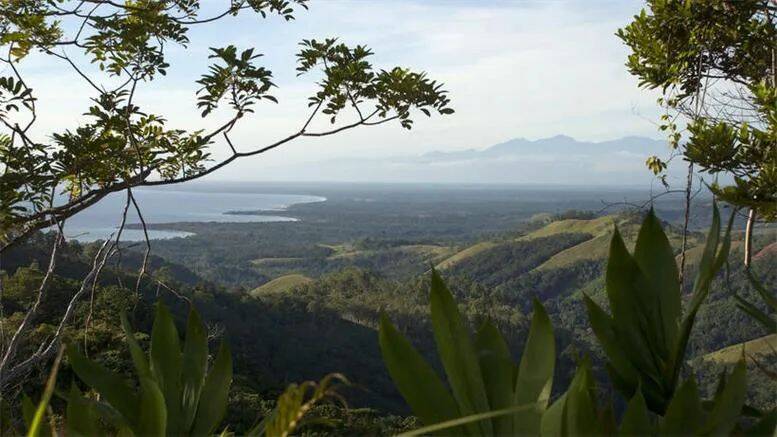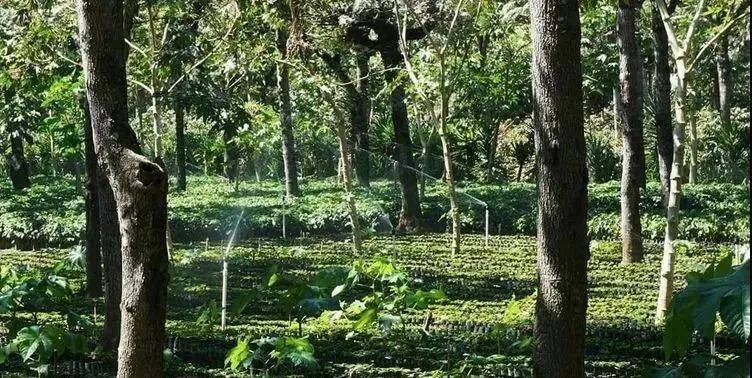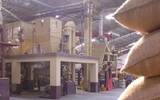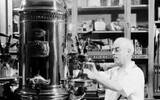Why is Papua New Guinea coffee called the "Little Blue Mountain"? What are the characteristics of coffee?
Jamaican Blue Mountain Coffee has always been very famous, winning the title of "Coffee Emperor" in the last century for its high quality and flavor. In addition, there is a country in Oceania whose environment, geography, climate and coffee beans are very similar to the Jamaican Blue Mountains, so the coffee produced in that country is known as the "Little Blue Mountain". This country is Papua New Guinea.
In Oceania, it is mainly composed of mainland Australia and more than 10,000 islands scattered in the Pacific Ocean. The formation of these islands is related to volcanism, so the volcanic geomorphology is widely distributed. Many countries in Oceania are agricultural countries, but not many countries and regions grow coffee, only Papua New Guinea and the state of Hawaii.
Most of the territory of Papua New Guinea is on the island of New Guinea, which has a straight dividing line that divides the island into east and west halves, with Indonesia in the west and Papua New Guinea in the east. The country consists mainly of the island of New Guinea and more than 600 islands around it. The south and north of the island are coastal areas with low elevations, so coffee cultivation is concentrated in the central New Guinea Heights (New Guinea Highlands), also known as the Central Ridge or Central Mountains, which consists of a series of mountains, volcanoes and intermountain valleys in the central part of the country.

In Papua New Guinea, areas above 1000 metres above sea level have a mountain climate, with an average temperature of about 16,027 ℃ and an average annual rainfall of 2500 mm. With high-altitude mountain areas, fertile soil brought by volcanic ash, rich natural environment, suitable climate and rainfall, it is very suitable for the growth of crops such as coffee, and there are many agricultural areas in the middle of the river valley.
Coffee was originally introduced to Papua New Guinea by Dutch sailors in the late 18th century and thrived in the Rigo region of Rico in the 19th century. By the 20th century, coffee had become the main commercial product in Papua New Guinea, with 180 acres of coffee planted in the country.

At the beginning of the 20th century, Papua New Guinea was under Australian control and Jamaica was a British colony. At that time, Australia had a friendly relationship with Britain, so Typica was introduced from Jamaica to Papua New Guinea, which belongs to the same pedigree as the famous Blue Mountain Coffee. In addition, the planting environment of Papua New Guinea is very similar to that of Jamaica, and the elevation and climate types are very similar, so after introduction, the iron pickup card quickly adapted to the environment of Papua New Guinea and became the main planting variety in the country. And the taste of the iron pickup produced in Papua New Guinea is also very close to that of Blue Mountain Coffee, so it gets the title of "Little Blue Mountain", but because Papua New Guinea is closer to the equator and the temperature is a little higher, there are still some differences under the subdivision.
In Papua New Guinea, coffee cultivation in Papua New Guinea is concentrated in four central highland provinces, namely, the West Highlands (Western Highlands), the East Highlands (Eastern Highlands), Chinbu (Chimbu) and Jiwaka Province. It is mainly grown by small farmers, with about 75 per cent of coffee products coming from small local farms, although there are also large estates, the most famous of which is Sigri.
Sigri is located in the country's largest coffee-producing province, Western Highlands, which is located in the Wahgi Valley and is nearby by the famous extinct volcano Mount Hagen, which provides fertile volcanic soil, as well as the right climate and rainfall, and developed agriculture.
Siguri Manor, founded in 1950, is the pioneer of the local coffee industry. The exported coffee sacks are printed with Papua New Guinea's National Bird of Paradise, so many people will call it Paradise Bird Manor.
Siguri's parent company is WR Carpenter company-PNG, which has about 1000 hectares of coffee grown in Papua New Guinea and is the country's largest coffee exporter, accounting for about 80 per cent of the country's coffee beans and tea exports. The manor pays great attention to ecological protection and refuses to use pesticides and pesticides to protect water and soil. And has been adhering to high standards of planting and handling for many years, providing customers with coffee of the same quality.
In the front street coffee, also includes Papua New Guinea, a well-known producing region of West Highlands West Gregory Paradise Bird Coffee beans, using Typica, using washing treatment, after brewing with caramel, cocoa, almond flavor, slightly sour at low temperature, mellow taste, overall balance.
For more information about coffee producing areas, please scan the code directly and follow: coffee comments.
Long press the QR code to follow:
TRANSLATE with
XEnglishArabicHebrewPolishBulgarianHindiPortugueseCatalanHmong DawRomanianChinese SimplifiedHungarianRussianChinese TraditionalIndonesianSlovakCzechItalianSlovenianDanishJapaneseSpanishDutchKlingonSwedishEnglishKoreanThaiEstonianLatvianTurkishFinnishLithuanianUkrainianFrenchMalayUrduGermanMalteseVietnameseGreekNorwegianWelshHaitian CreolePersian
TRANSLATE with
COPY THE URL BELOW
BackEMBED THE SNIPPET BELOW IN YOUR SITE Bing Webmaster PortalBack
Important Notice :
前街咖啡 FrontStreet Coffee has moved to new addredd:
FrontStreet Coffee Address: 315,Donghua East Road,GuangZhou
Tel:020 38364473
- Prev

The Kenyan government will launch a national coffee brand!
According to local media reports in Kenya, the Kenya Export Promotion and Branding Agency (Keproba) and the Agency for Regulation and Promotion of Agricultural Sector Development (Afa) are planning to develop a unified national brand to increase the country's coffee exports, and hope to integrate the country's coffee through this work. Global marketing and promotion
- Next

What are the characteristics of Naples coffee? How to make coffee cream? Is the birthplace of espresso machines in Italy?
Espresso is a high-concentration coffee extracted in a short period of time by a coffee machine using high-pressure extraction. It is not only the basis for making various fancy coffees, but also an independent coffee product itself. Former Street Chang said that because of its high concentration, friends who have tasted concentration for the first time are likely to be highly affected by it.
Related
- What grade does Jamaica Blue Mountain No. 1 coffee belong to and how to drink it better? What is the highest grade of Blue Mountain coffee for coffee aristocrats?
- What are the flavor characteristics of the world-famous coffee Blue Mountain No. 1 Golden Mantelin? What are the characteristics of deep-roasted bitter coffee?
- Can I make coffee a second time in an Italian hand-brewed mocha pot? Why can't coffee be brewed several times like tea leaves?
- Hand-brewed coffee flows with a knife and a tornado. How to brew it? What is the proportion of grinding water and water temperature divided into?
- What is the difference between Indonesian Sumatra Mantinin coffee and gold Mantinin? How to distinguish between real and fake golden Mantelin coffee?
- What does bypass mean in coffee? Why can hand-brewed coffee and water make it better?
- Unexpected! Ruixing Telunsu lattes use a smoothie machine to foam milk?!
- % Arabia's first store in Henan opens into the village?! Netizen: Thought it was P's
- Does an authentic standard mocha coffee recipe use chocolate sauce or powder? Mocha Latte/Dirty Coffee/Salty Mocha Coffee Recipe Share!
- What is the difference between Vietnam egg coffee and Norway egg coffee? Hand-brewed single product coffee filter paper filter cloth filter flat solution!

